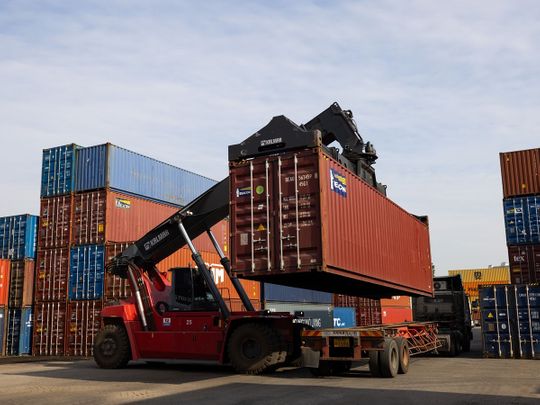
Dubai: As Red Sea tensions simmer, will businesses worldwide reap the benefits of their investments in technology and supply chain made during the Covid year? A new poll suggests businesses remain optimistic about their chances during 2024.
“The findings reveal a remarkable optimism, despite businesses having to operate in an increasingly uncertain environment,” said Sultan Ahmed bin Sulayem, DP World Group’s Chairman and CEO. (DP World along with Economist Impact has brought out the ‘Trade In Transition’ study.)
“Governments can maximise the significant economic benefits of trade by providing the predictability that businesses need, while reducing trade friction.
“This entails not only tariff reduction, but also collaborating with the private sector to roll-out technological advancements – most notably in digitalisation, automation and AI – that enable greater efficiency, visibility and adaptability.”
The fourth in the annual survey, the Trade in Transition pulls in perspectives of trade experts and senior corporate executives across regions and sectors.

The findings reveal a remarkable optimism, despite businesses having to operate in an increasingly uncertain environment
“This period of unprecedented transformation – heightened geopolitical risk, the urgent realities of climate change and significant advancements in technologies – is causing businesses to face complex challenges,” said a statement issued by DP World.
“Yet there are also opportunities.”
Over a third of the companies polled in the DP World-Economist Impact survey plan to use 'friend-shoring' to shape trade and supply chain operations. And 32% are creating parallel supply chains or 'dual sourcing'.
More than a quarter could opt for fewer suppliers – a 16 percentage point increase from the previous year's trade survey. Businesses clearly are weighing the advantages of consolidation against diversification and control against resilience.
A definite place for AI?
In all, the Trade in Transition survey polled 3,500 company executives, who found tech that helps improve supply chain resilience to be the main reason for optimism on the future of global trade. Here too AI related adoption is helping, with 98 per cent of those polled 'already' using AI on at least one aspect of their supply chain operations.
While a third of businesses are utilising it to deliver cuts in overall trade operation costs, a same percentage do it in resource and supply chain planning. And over one-third of companies view 'boosting use of digital tools' for inventory management as the 'most effective strategy' in cutting trade and supply chain costs.
0.9 %
What the drop in global output could be from any further 'geo-economic fragmentation'. This scenario focuses on 'significantly increased' trade barriers on high-tech goods.“In 2024, amidst heightened geopolitical risk and the rising impact of climate change, there is an observable increase in the variability of approaches businesses are taking to their supply chains," said John Ferguson, Global Lead - New Globalisation at Economist Impact.
"This reflects a growing understanding that no single strategy will meet the needs of different businesses. What’s clear is that technology is being implemented across supply chains to ensure business can adapt faster and smarter.”








